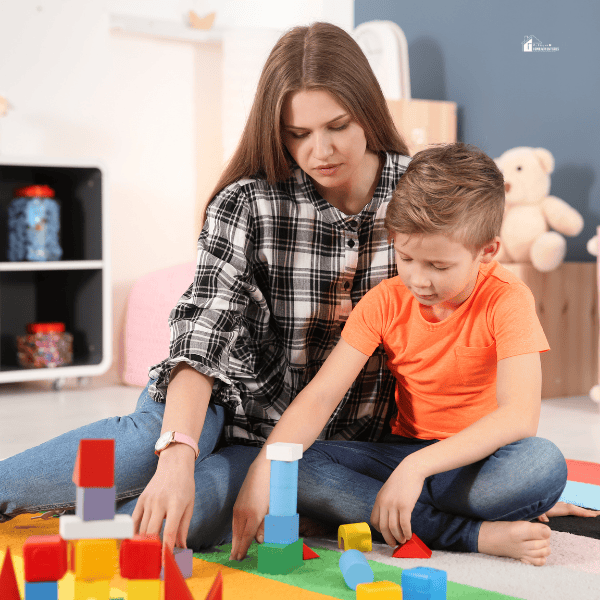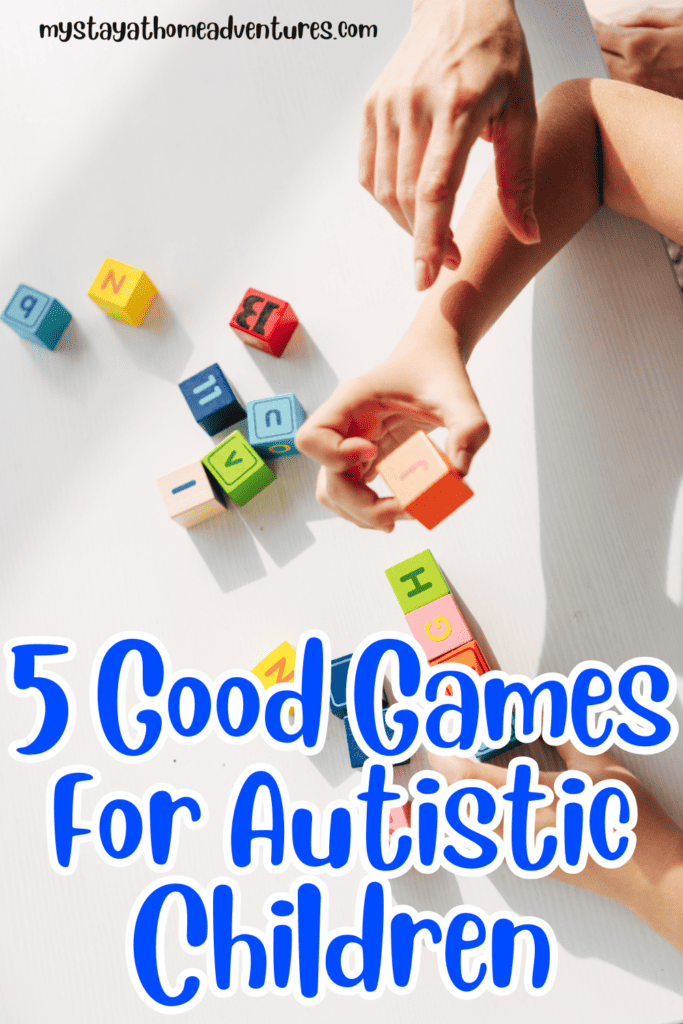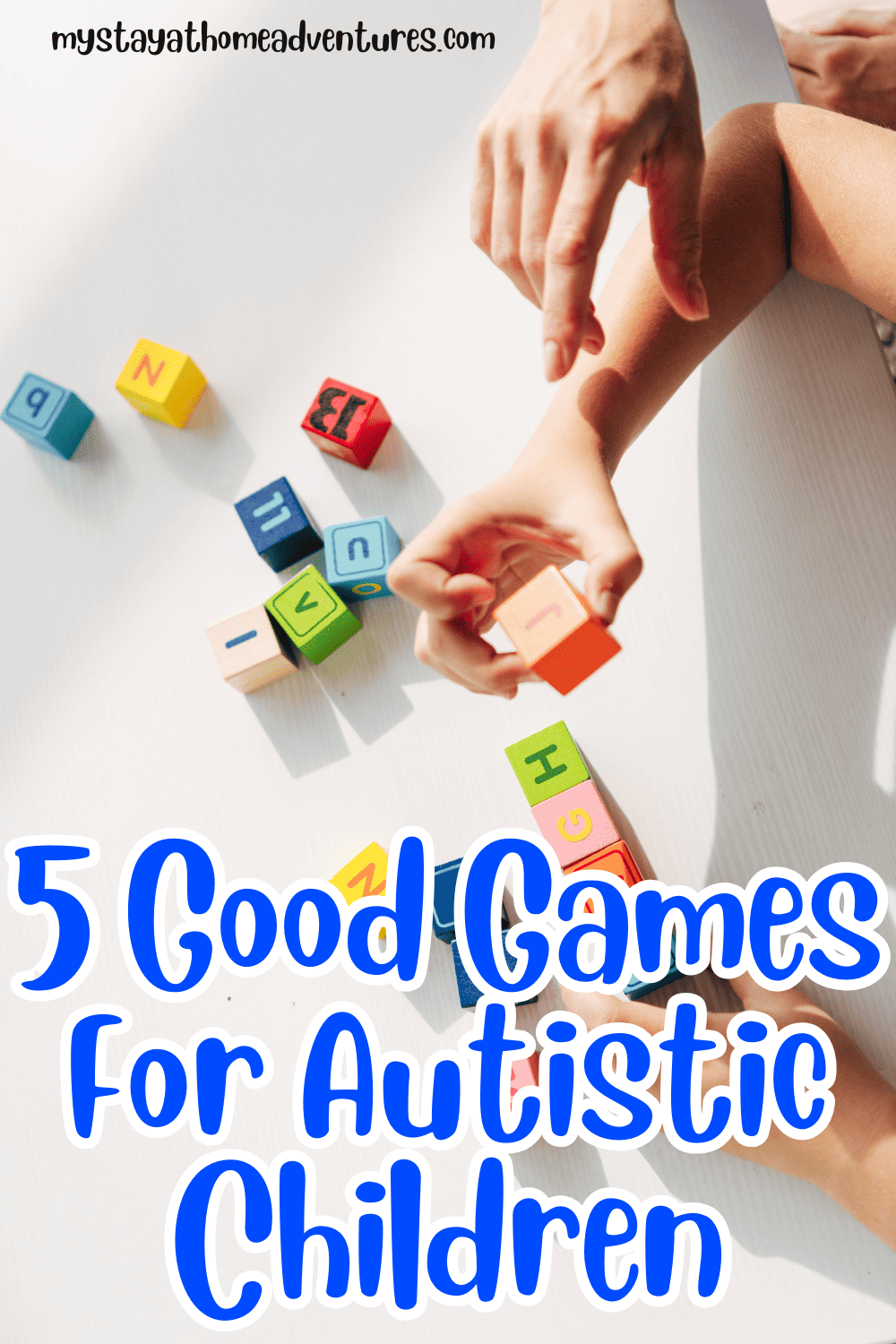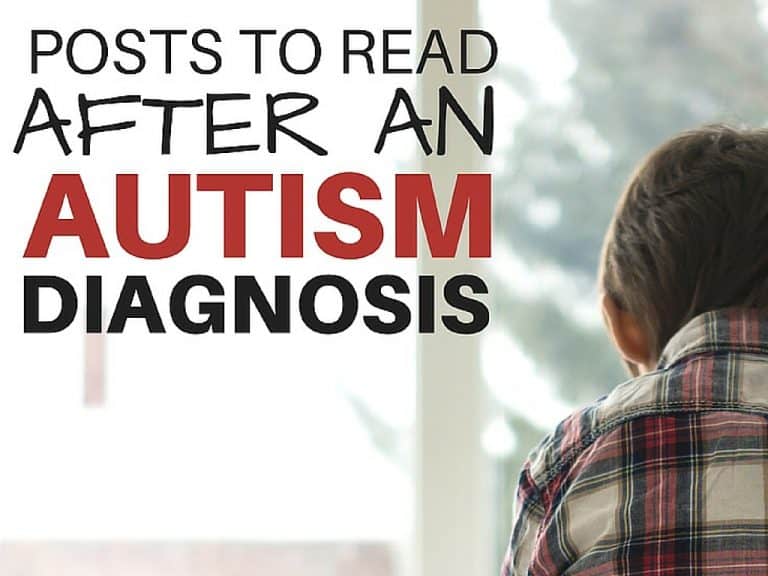What Are Some Good Games For Autistic Children? 5 Best to Know
This post may contain affiliate links which might earn us money. Please read my Disclosure and Privacy policies hereDealing with an autistic child can feel like going through a rollercoaster of emotions every day. At this moment, your little bundle of joy is brimful of exuberance, and before you know it, he’s throwing tantrums all over the place.
As a parent, you must stay on top of the coping mechanisms, which often require a great deal of patience and understanding.
But thanks to advancements in medical technology, autism is now manageable. Parents can implement a raft of evidence-based psychosocial interventions to nurture the social and communication skills of autistic children with a view to enriching their environments. One such strategy is scheduling fun, engaging games.
This article will highlight the five best games to play with autistic children.

1. Matching Game
Autistic children love simplicity and orderliness. They also prefer their living environments to maintain a certain level of consistency. That explains why Matching is one the most relatable games for autistic kids.
What you (and your autistic child) will love about the Matching Game is that there are multiple ways to play it. A popular gameplay entails drawing simple shapes on pieces of paper, dividing each piece by half, and then asking your child to match the shapes. The idea is to help the child establish relationships between different letters, shapes, or words.
The choice of letters or images depends on your child’s cognitive capabilities.
For beginners, basic alphabetical letters would do. You could split, say, the letter A into two and have the child bring the two pieces together into a solid letter.
For advanced learners, you could play the Matching Game with words or pictures.
2. Emotion Cards
Autism presents a wide spectrum of symptoms. And while these manifestations can vary considerably from one child to another, almost all autistic kids suffer from emotional incontinence. But that's where Emotion Cards can come in quite handy.
Emotion Cards are exactly what they imply – printable cards designed to help children, particularly special needs kids like those with autism, recognize and possibly seize control of their feelings. The cards feature varied kid faces, each expressing different emotions and the meaning of that expression written underneath each face.
To play Emotion Cards, start by having your autistic child interact with all the cards and their corresponding emotions. Then, prepare cut-outs that depict different feelings but without meanings underneath them.
Now, shuffle the cards and have the child guess the emotion associated with each card.
It’s okay if your autistic kid is stuck in the game. Simply assist them by matching the correct card with their answer.
3. Memory Game
Memory Game is another excellent card game you could play with your autistic child. Unlike Emotion Cards, which focus on recognizing different emotions, Memory Game is about honing your autistic child's memory skills.
Find two geometrically identical cards. The bottom of each card can be plain, but the top must feature unique designs.
Have both cards face-up on a flat table and let your autistic child examine the designs.
Now, turn the cards face-down, jumble them a bit, and ask the child to tell them apart based on the patterns on their top faces.
As your child masters the Memory Game, you can increase the number of cards to further sharpen their memory skills. You could even spice things up by turn-taking and roleplaying.

4. Hide and Seek
If you're looking for a straightforward game that your autistic child is probably already familiar with, you might consider Hide and Seek.
Although Hide and Seek requires minimal social interactions, it can significantly improve motor skills for children with autism. Besides, there are multiple ways you could adapt the game to suit your kid’s age and cognitive levels.
For the best results, start by explaining the rules of Hide and Seek to your autistic child. Test the kid to ensure they already understand basic rules before you start with the gameplay.
Note that impatience and reduced concentration are some of the signature symptoms of autism. Therefore, keep the gameplay short but exciting. You can incorporate a secondary activity, such as an interactive toy or picture book, to engage the ‘hiding' child.
It's also prudent to use familiar words or phrases. Moreover, you could start playing the game indoors and then venture outdoors gradually as your child begins to establish their social boundaries.
5. Turn-Taking Games
Turn-taking is a fundamental social skill. Sadly, it’s one of the concepts that kids with autism struggle to grasp.
Teaching your autistic kid turn-taking can help avert undue tensions during social interactions. Besides, it fosters patience by letting the child appreciate that they'll not always be first in the queue.
Imparting turn-taking skills in an autistic child further reinforces the importance of observing rules and systems. It also allows the child to assume their fellow children’s perspectives, which can be instrumental in developing empathy.
There's a plethora of turn-taking games you could line up for your autistic little ones.
As with other fun activities on this list, the trick is to pick a game that resonates with your kid's age, interests, and cognitive capabilities.

Summary
Incorporating the above activities into the family routine can make a significant difference for parents living with autistic children. However, it’s imperative to remember that coping with autism is a lifelong commitment.
As a parent, you’ll need to play an active role in nurturing your child’s long-term psychosocial wellbeing.




